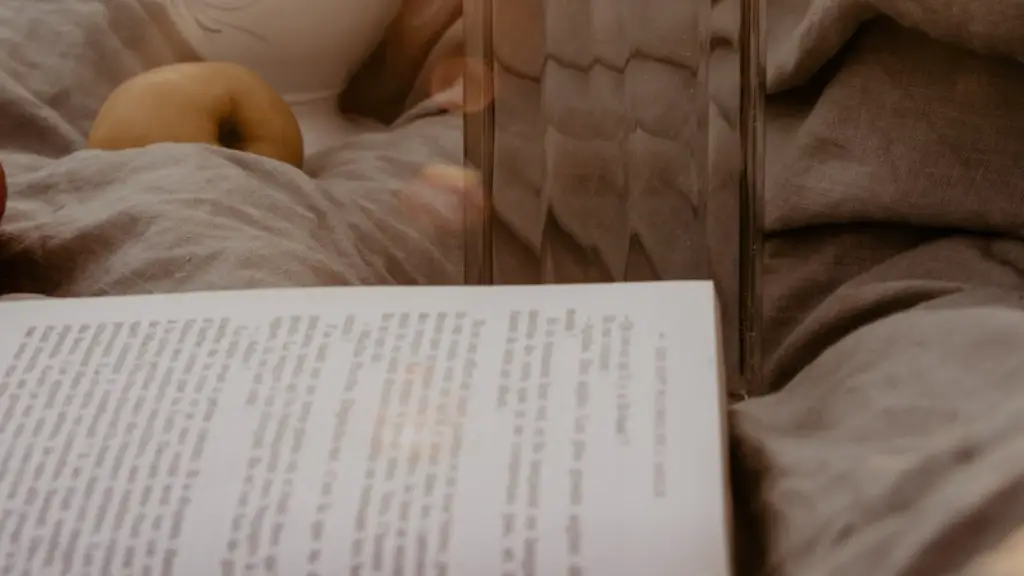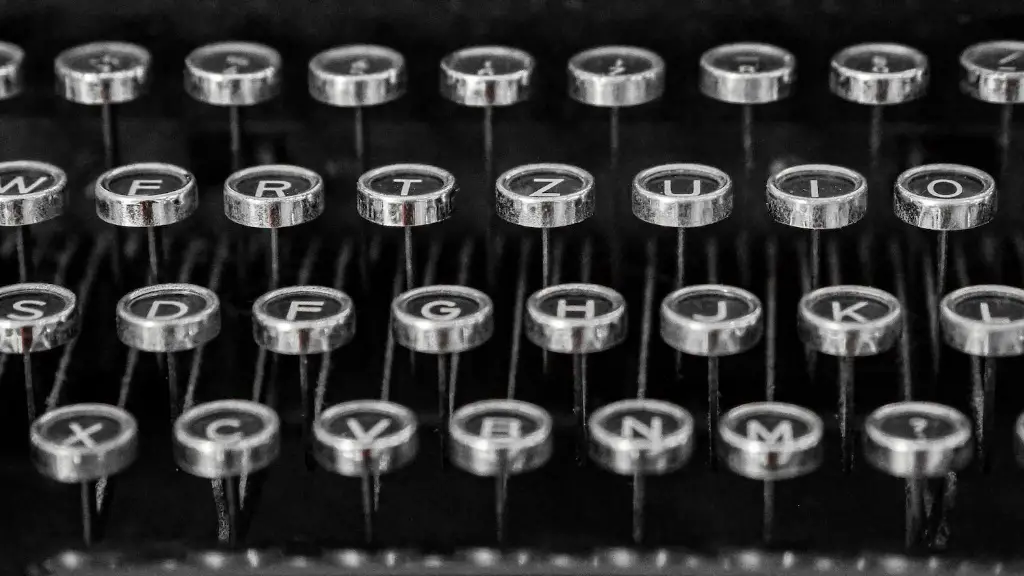Poetry reviews can be a great way to learn about different poets, their works, and the personal styles associated with them. But, what can be gained from reading poetry reviews, and what should readers consider before investing their time into them? While poetry reviews can offer helpful insights about the poems, the writers and readers should exercise caution in taking anything that a reviewer has to say at face value.
Reading poetry reviews may be deemed a useful exercise for those who are intending to read some of the poetry before delving deeper into it. It is possible to gain some level of understanding from a review as to the content, style, and messaging of the poem. However, it should be remembered that not everyone interprets poetry in the same way. To that end, it is important to remember that a reviewer’s opinion is their own and may not match that of the reader, due to their own personal outlook, biases, or experience.
Reviewers should also be aware of the pitfalls of writing reviews. Firstly, it can be difficult to form an educated opinion on a poem without having adequate knowledge of the genre, poet, or context. Furthermore, reviews can be difficult to write objectively, particularly since poetry can be highly subjective; relying on personal tastes, believes, values, and experiences. As such, an individual may not be in a position to comment on the artistic merit of a poem in an unbiased and valid way.
When reading a reviewers opinion, it can also be worthwhile to consider that the assessment of a poem is rarely black and white; often employing metaphors and comparisons to literary works or aspects of life in general. A poem may be impressive from an aesthetic perspective, but may not be particularly relevant in the greater scheme of things, or easy to understand. Consequently, it could be wise for readers to examine a review for its degree of critique, rather than its judgement value, as this may offer a better insight into the poem itself.
An important factor to remember when reviewing a poem is the historical context that should be considered when studying any work of art. For instance, a reader may form an opinion of a poem based upon his or her own understanding of the language, style, and content, but may miss the bigger picture entirely due to its absence from the review. It is often the case that the essence of a poem, its deeper meaning, may lay dormant beneath the surface, and only be realized when suited with the correct framing of period and ontology.
The Role of Emotion
More often than not, a poem will incorporate some form of emotion into its words, often bearing some level of significance. For a reviewer, it is essential to keep this in mind when giving their opinion on the work. A poem may be striking or lyrical to a reader solely due to its emotive qualities, even if it is not particularly effective in narrative structure or context. As such, a review should pay close attention to the emotive aspects within a poem, paying specific attention to the construction of lines, the choice of words, and the role of imagery.
The value of emotion within a poem should also be considered when judging the work. It is often the case that particular poems will have a strong emotive appeal, regardless of their narrative or structural strength. Of course, this should not be relied upon alone and readers should still take into account narrative content and structure in order to gain a comprehensive view of the poem.
It is also important to remember that the emotive content of a poem may not always be readily apparent, depending on its style and content. As such, it is beneficial to consider the entire work before giving an opinion, and readers should bear in mind that a poem may not be as effective or moving upon first reading as it could be upon deeper consideration.
Personal Connection
Personal connection should also be taken into account when forming opinions on poetry. It is often the case that a poem can move an individual based purely upon their own personal connection to the language or context. Again, while this should not be relied on alone, it can be the determining factor in how an individual perceives a poem.
Furthermore, personal connection can be explored further. For instance, a reader may have connections with particular phrases or words that have been used within the poem, which can evoke certain feelings or memories. Again, this should be taken into account when analysing a poem and can be just as influential, if not more so, than the narrative or poetic structure.
In addition, the idea of personal connection can be extended to other aspects of life. For instance, a reader may relate to a poem in an entirely different capacity, based upon their own personal experiences. This could be anything from emotions, places, people, or ideas that the poem may bring to mind. While this could be seen as subjective, it is still important to consider, as it can add a greater depth of understanding or appreciation to any poem.
Form over Content
Finally, form is often the deciding factor in how a poem is received. It is important to consider the position of the poem within the wider artistic context and what kind of artistic merit it holds. This could mean anything from the type of poetic structure that has been used, the poetic devices employed, the complexity of the language, or any other elements that could be deemed artistic in nature. Once again, this should not be relied on as the sole source of evidence, but can be seen as an integral part of assessing the overall quality of the poem.
Form can also be important in establishing a connection between the reader and the poet. Most readers will have a familiarity with certain forms of poetry, such as the sonnet or haiku, through the study of past works. This can be the first point of connection for a reader, and is often the deciding factor in how open the reader is to the poem in general. By understanding how a particular poem has been constructed, readers can often get an insight into the thought processes and influences of a poet, providing an additional layer to their understanding of the work.
Exploring the Genre
When reading a poem, it is important to keep in mind that poetry can take a variety of forms. Many readers may be familiar with traditional forms of verse, such as the sonnets and haikus, but may be less familiar with abstract forms of poetry, such as the concrete poem. Poetry can come in the form of songs, plays, and other works of literature, which can all offer a different perspective on the work. Therefore, reviewing a poem should always consider the wider context of the genre itself.
Furthermore, it should be noted that studying a poem does not involve only appreciating the content within it. Instead, learning about the poet and their influence can help to add context to the work. By learning about different techniques and movements within the poetry world, readers can gain a better understanding of how a poem has been constructed and how it fits within its historical context. Studying periods and trends within poetry can also be a useful exercise in providing a deeper understanding of a poem.
Conclusion
In conclusion, poetry reviews can provide useful insights for readers, allowing them to gain a better understanding of a poem. However, readers should take any review with a pinch of salt and consider the overall context of the poem and its genre. Furthermore, personal connection, form, and emotion should also be considered, as these can often provide a greater understanding of a poem, particularly from a subjective standpoint.




